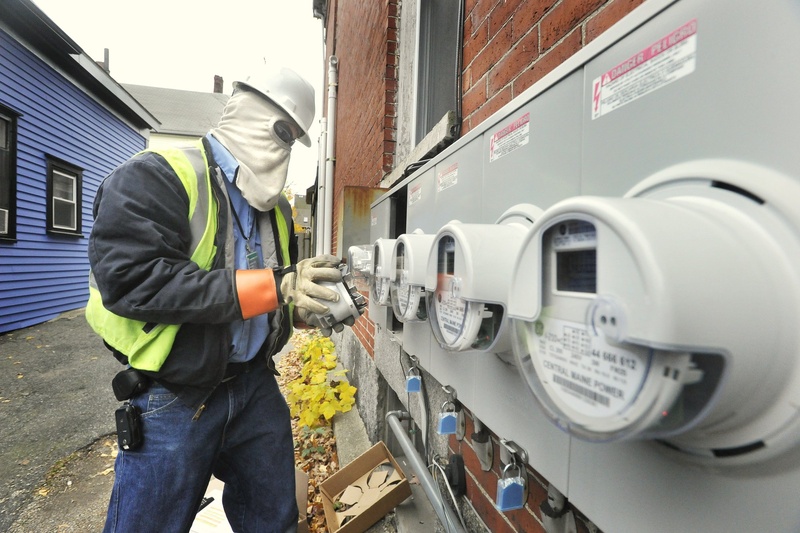Correction: This editorial was revised at 5:45 p.m., April 27, 2011, to correct the Public Utility Commission’s schedule in the smart meters case. Today is the deadline for comments. No commission deliberation or decision has been scheduled.
The Public Utilities Commission staff has proposed a reasonable compromise on the smart-meter controversy that should satisfy all involved. Customers who prefer not having a wireless meter that broadcasts their electricity usage to the company would have that option, but they would have to pay for it.
One option would allow customers to keep their old mechanical meter for an upfront cost of $40 and a subsequent fee of $12 a month thereafter. Customers could also keep their smart meter with the transmitter turned off for an initial fee of $20 and a monthly charge of $10.50.
This deal would allow people who don’t want a radio transmitter close to their living space to opt out, but would not penalize the majority of Central Maine Power customers who accept the technology as a way to cut costs and reduce upward pressure on current electric rates.
If it is paired with time-of-day pricing, the technology could give customers a valuable tool to manage their electricity use and reduce their bills.
The proposal will inevitably draw complaints from smart-meter opponents who argue that they should not be penalized for refusing to accept a technology upgrade that they never asked for. But that’s misguided.
The PUC staff’s proposal is not based on evidence that smart meters are harmful, because there is none. It was a response to customers who said they suspected the meters could be dangerous and would not accept them until the negative was proved and the meters were declared not harmful.
People already pay more for products that they perceive to be safer. Some pay more for organic produce even though commercial products grown with chemical fertilizer and pesticides are considered safe. They pay more for bottled water, even in places where they could get high-quality water from a well or public water system.
The three-member PUC has not scheduled a date for deliberation or a decision on the proposal. As long as the additional fees cover the cost of maintaining and reading the old meters, this compromise could be a good resolution to this debate.
Copy the Story Link
Send questions/comments to the editors.



Success. Please wait for the page to reload. If the page does not reload within 5 seconds, please refresh the page.
Enter your email and password to access comments.
Hi, to comment on stories you must . This profile is in addition to your subscription and website login.
Already have a commenting profile? .
Invalid username/password.
Please check your email to confirm and complete your registration.
Only subscribers are eligible to post comments. Please subscribe or login first for digital access. Here’s why.
Use the form below to reset your password. When you've submitted your account email, we will send an email with a reset code.